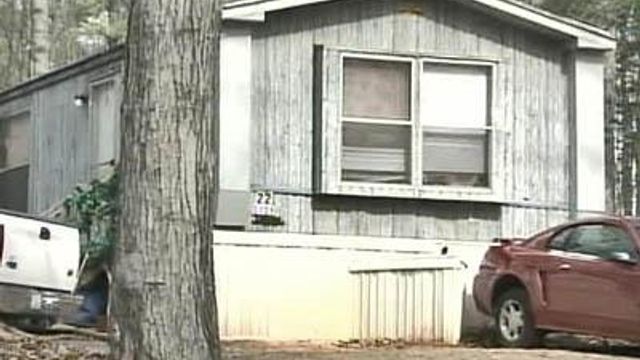Brothers Detained in Scrap Plant Ammo Case
Federal authorities charged two brothers with immigration violations and held them in connection with the discovery of military explosives at a Raleigh scrap-metal recycling plant.
Posted — UpdatedMeanwhile, a team of munitions experts from Fort Bragg blew up the last of the devices that were found Tuesday at Raleigh Metals Recycling after at least one exploded.
Javier Gomez-Urieta and Salvador Gomez-Urieta were arrested Tuesday on immigration violations and were being held for questioning in munitions case by U.S. Immigration and Customs Enforcement agents, said Capt. David Smith, of the Sanford Police Department.
Members of the Sanford Police Department's Special Enforcement Unit searched a mobile home at 2725 Carver Drive in Sanford and found artillery shells in the yard similar to the ones that were dropped off at Raleigh Metals Recycling plant, Smith said. Most of the shells were spent, but at least two were live rounds, he said.
The FBI and the federal Bureau of Alcohol, Tobacco, Firearms and Explosives also are investigating the case.
At least 18 anti-tank projectiles and three 90 mm rifle rounds were dropped off at Raleigh Metals Recycling last week in a load of scrap. As the material was processed on Tuesday, at least one of the devices went off, injuring two plant workers.
Scrap plant owner Greg Brown provided authorities with information that identified the people who sold the munitions to the plant, and Raleigh police traced two men to the Sanford area, Smith said.
The men had several addresses in the area, making it more difficult for officers to locate them, he said. One man was found in Broadway, while the other was found in Harnett County, he said.
"That's a terrible thing going on up there," said Tony Bradley, who lives near the Sanford mobile home park where the artillery shells were found. "I'm thinking about it every time I see it on the news. I see another one being exploded, and to think that's here in our little community, that's earth-shattering."
Munitions experts from Fort Bragg found unexploded ordnance in the machinery and in bales of scrap at Raleigh Metals Recycling and decided it was safer to detonate the devices at the site than to move them elsewhere.
Thirty-four detonations were used over four days to destroy the devices, and police said Friday afternoon that the process had been completed.
The detonations required Raleigh police to close Garner Road between Rush Street and Newcombe Road every day since Tuesday and forced nearby residents to evacuate their homes three times this week. The residents were allowed to return home Wednesday and Thursday night sand told to leave the next morning as detonations resumed.
"This is an unusual situation that's inconvenienced and disrupted the lives of 25 to 30 people, but as always, safety is important," Mayor Charles Meeker said. "That has been the priority, and that's how it's been handled."
City officials promised Friday to work with area residents whose lives have been disrupted by the incident. Updated information would be hung on front doors in the neighborhoods near the plant Friday afternoon and calls would be made to all residents in the area, Meeker said.
"We thought this might be a one-day operation," City Councilman James West said. "We are truly committed to making sure people get their lives back to normal and that they're safe."
Brown said all of his employees would go through new training before Raleigh Metals Recycling reopens. An ex-military officer who specializes in munitions would be brought in to teach workers how to distinguish live ammunition from spent shells, he said.
The plant routinely accepts spent ammunition for processing but has a policy against buying live rounds, Brown said.
• Credits
Copyright 2024 by Capitol Broadcasting Company. All rights reserved. This material may not be published, broadcast, rewritten or redistributed.






